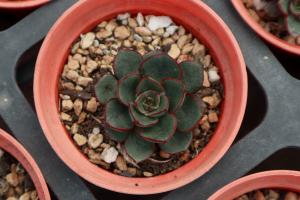Does Hot Water Kill Plantar Warts?
Plantar warts are a common and often painful skin condition. These warts can appear on the soles of the feet and can be caused by the human papillomavirus (HPV). Treatment for plantar warts can range from topical creams to surgical removal. However, one common question people ask is whether hot water can effectively kill plantar warts.
The Basics of Plantar Warts
Plantar warts are often mistakenly identified as calluses or corns. These warts appear as small, grainy growths on the surface of the skin, typically on the soles of the feet. They are caused by a strain of HPV that enters through a cut or other small opening on the skin. Plantar warts are often painful, especially when pressure is applied to them. They can even cause problems with walking or standing.
Why Hot Water May Be Effective
Hot water has been touted as an effective treatment for plantar warts by some people. The idea behind this is that the high temperature of the water can kill the virus that causes the warts. Additionally, soaking the feet in hot water may soften the skin and make it easier to remove the wart.
The Risks of Using Hot Water to Treat Plantar Warts
While hot water may seem like a simple and inexpensive solution for plantar wart treatment, there are risks involved. For one, hot water can cause burns if the temperature is too high. Moreover, the virus that causes plantar warts can survive at high temperatures, so hot water may not be effective at killing the virus. Further, soaking the feet in hot water can damage the skin, making the wart worse or even causing an infection.
Other Treatment Options for Plantar Warts
While hot water may not be the most effective or safe treatment option for plantar warts, there are other options available. Over-the-counter wart removal creams are available that can help break down the wart, allowing the body's immune system to fight off the virus. Cryotherapy, which uses liquid nitrogen to freeze the wart, is another option that is often effective. Additionally, surgical removal of the wart is sometimes needed.
Conclusion
While hot water has been suggested as a treatment option for plantar warts, it is not necessarily the best choice. The risks of burns, further damage to the skin, and the virus surviving at high temperatures make hot water a risky solution. It's important to seek professional medical advice for treating plantar warts, and to explore safe and effective options such as OTC creams, cryotherapy, or surgical removal.

 how many times do yo...
how many times do yo... how many planted tre...
how many planted tre... how many pine trees ...
how many pine trees ... how many pecan trees...
how many pecan trees... how many plants comp...
how many plants comp... how many plants can ...
how many plants can ... how many plants and ...
how many plants and ... how many pepper plan...
how many pepper plan...






























